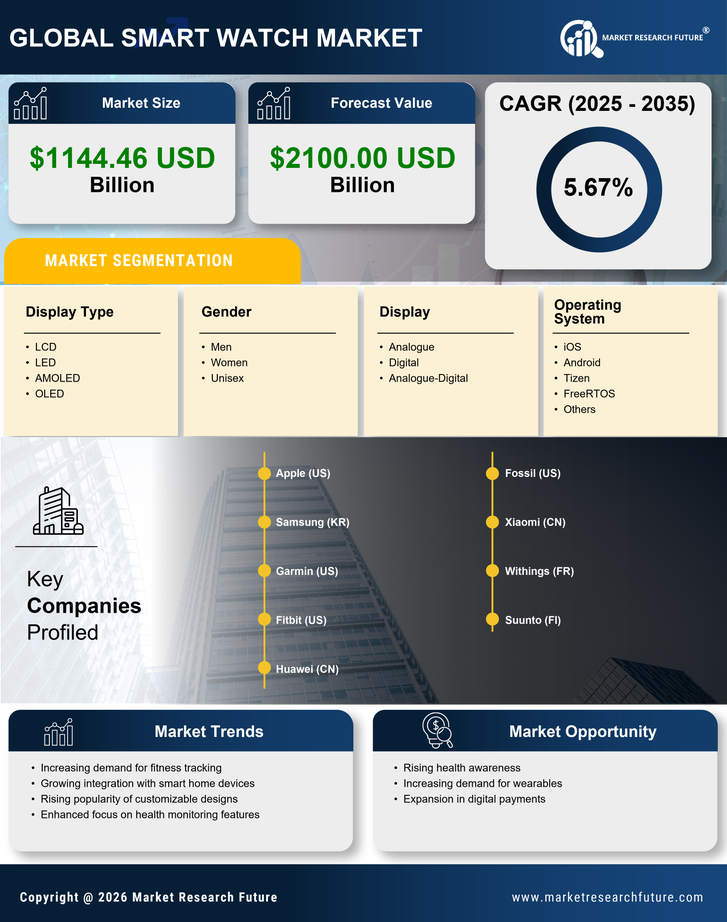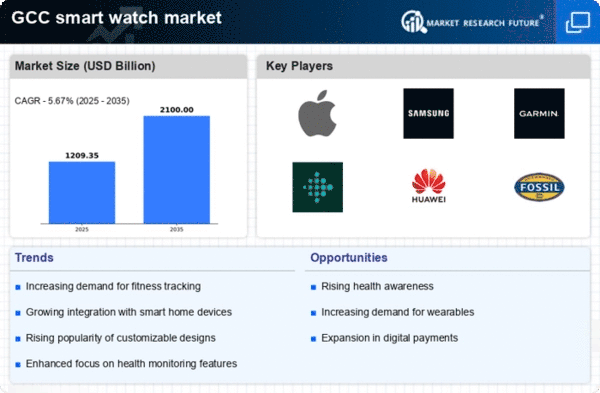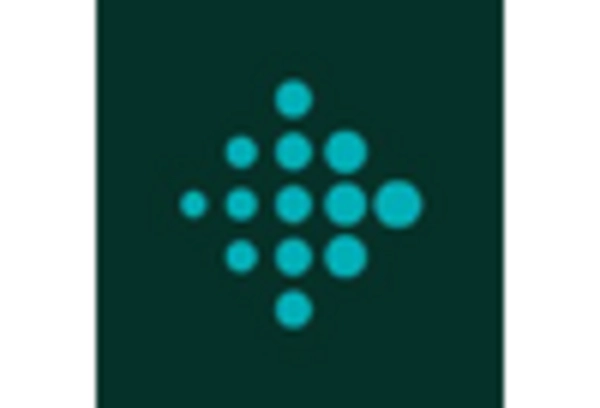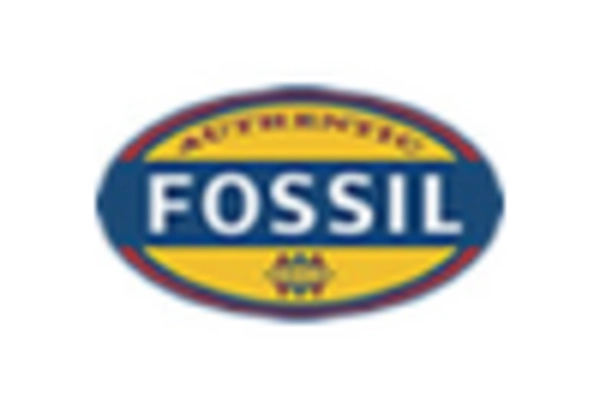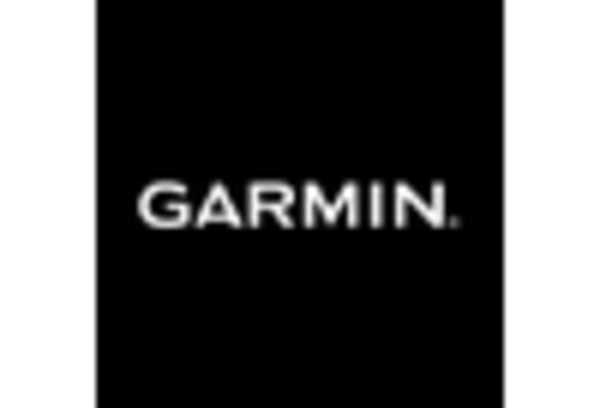Rising Health Awareness Among Consumers
There is a notable increase in health awareness among consumers in the GCC, which is significantly impacting the smart watch market. As individuals become more conscious of their health and fitness, the demand for devices that can monitor vital signs and track physical activity is surging. Reports indicate that around 60% of consumers in the region are now prioritizing health-related features when purchasing wearable technology. This trend suggests that smart watches equipped with health tracking functionalities are likely to dominate the market. Consequently, manufacturers are focusing on developing products that not only offer fitness tracking but also provide insights into overall well-being, thereby enhancing the appeal of the smart watch market.
Technological Advancements in Wearable Devices
The smart watch market is experiencing rapid technological advancements, which are driving consumer interest and adoption. Innovations such as improved battery life, enhanced sensors, and advanced health monitoring features are becoming increasingly prevalent. For instance, the integration of ECG and blood oxygen monitoring capabilities has attracted health-conscious consumers. In the GCC region, the market is projected to grow at a CAGR of approximately 15% from 2025 to 2030, indicating a robust demand for technologically advanced smart watches. As manufacturers continue to innovate, the smart watch market is likely to see an influx of new features that cater to diverse consumer needs, further propelling its growth.
Growing Demand for Connectivity and Communication
The smart watch market is witnessing a growing demand for enhanced connectivity and communication features. Consumers are increasingly seeking devices that allow them to stay connected without relying solely on their smartphones. Features such as call and message notifications, as well as the ability to respond directly from the watch, are becoming essential. In the GCC, it is estimated that over 40% of smart watch users prioritize connectivity features, indicating a shift towards multifunctional devices. This trend is likely to encourage manufacturers to innovate and integrate advanced communication technologies, thereby expanding the capabilities of smart watches and attracting a broader consumer base.
Increased Disposable Income and Consumer Spending
The smart watch market is benefiting from increased disposable income and consumer spending in the GCC region. As economic conditions improve, consumers are more willing to invest in premium wearable technology. The average spending on smart watches has risen by approximately 20% over the past year, reflecting a growing trend towards luxury and high-end devices. This shift suggests that consumers are not only looking for functionality but also for style and brand prestige. Consequently, manufacturers are likely to focus on producing high-quality, aesthetically pleasing smart watches that cater to the affluent segment of the market, further driving growth in the smart watch market.
Expansion of E-commerce and Online Retail Channels
The smart watch market is experiencing a significant expansion of e-commerce and online retail channels, which is facilitating easier access for consumers. With the rise of digital shopping platforms, consumers in the GCC can conveniently purchase smart watches from the comfort of their homes. Recent data indicates that online sales of smart watches have increased by over 30% in the past year, highlighting a shift in consumer purchasing behavior. This trend suggests that manufacturers and retailers are likely to invest more in online marketing strategies and partnerships with e-commerce platforms to enhance visibility and reach. As a result, the smart watch market is poised for further growth as online shopping continues to gain traction.
